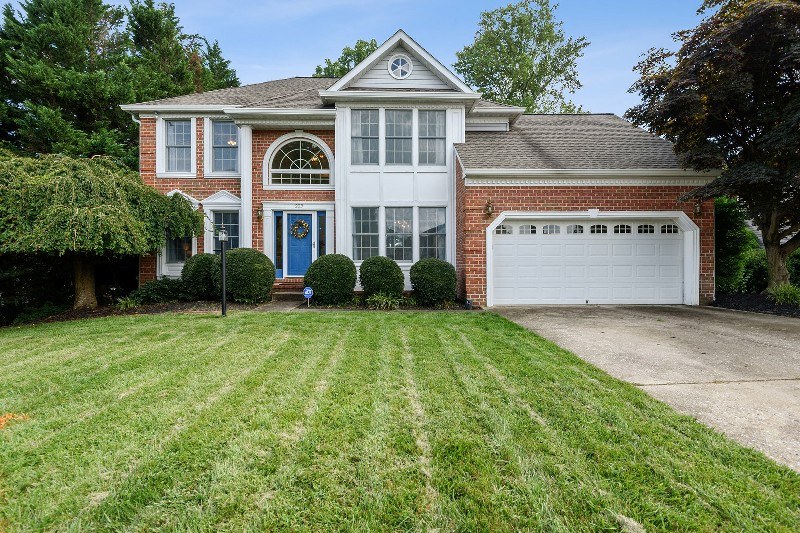
Should I Sell My House in 2021? Realtors Weigh In
Posted on Sep 22, 2022
The housing market is as hot as it’s ever been. In some areas, homes are going under contract...

Posted on Sep 22, 2022
According to Rocket Mortgage, first-time home buyers live in their homes for an average of 11 years before selling and moving on to the next property. If you're a homeowner thinking about selling, it's possible that smartphones were still an emerging technology when you bought your first home.
A lot has changed since then - and you yourself are more educated about real estate, including what can go wrong during the process, and what value a Realtor and brokerage bring to the transaction.
Ready to leap into home buying the second time around? Here’s what you should keep in mind.
One study of first-time home buyers found that nearly 50% of them experienced constant stress throughout the process. Before buying their first home, many people assume that the process is easy now that anyone can shop for homes on Zillow and get all the relevant information without leaving their living room. Agents seem like a relic of the past.
The lived experience, though, can be very different - as people find out. Homebuyers often have to communicate back and forth between their agent, their lender, and their title company - increasing the chances that papers are lost or details are forgotten, especially because the homebuyer has little familiarity with what the process is supposed to look like.
When it comes to buying a home for the second time, second time home buyers should focus on eliminating stress and complication so that they can focus on what’s truly important - and not have essential details falling by the wayside.
Lately, you may have encountered real estate brokerages that bill themselves as technology companies. To former homebuyers who have dealt with agents conducting all their business by email, fax and phone, the “technology” part can be confusing - considering how little it seemed to have mattered for their last transaction.
Brokerages like Houwzer have streamlined the home buying process and put everything on a single tech platform. By doing so, it’s easy to visualize the various stages of the home buying process - as well as understand what steps are needed next. Houwzer’s proprietary dashboard indicates whether buyers and their agents have successfully completed necessary tasks, reducing the likelihood that human error (and missing paperwork) hold up the transaction.
Houwzer's agents are equipped with technology and a full support staff who keep everything organized so you'll always know what's next - and you'll never have to worry about missing a deadline.

You might remember applying for loans and grants when you were a first-time homebuyer. Do any such benefits exist the second time around?
What many people don’t realize is that where most programs and grants are considered, you can become a “first-time home buyer” again once you go three years without owning your primary residence.
Otherwise, while there are not many grants available for second time home buyers, there are various programs in place to help you land a home (especially if you are a veteran or lower income buyer).
Here are the main programs you should know about.
So long as you meet the FHA’s requirements, you can qualify for an FHA loan as a second-time home buyer. This allows you to have a lower down payment and a lower interest rate, along with other benefits.
If you or your spouse are a veteran or in active duty, you can qualify for a VA loan. There are no limits to how many VA loans one can qualify for in one’s lifetime. This loan will also allow you to access lower interest rates, no PMI, and zero money down. This can be especially helpful if you plan on renting out your first home rather than selling it (though you can always use a HELOC, or Home Equity Line of Credit, in order to use the existing equity of your first home to pay for closing costs/down payment on your second home - more on that below).
Many homeownership assistance programs vary by locale. Florida, for example, has a down payment assistance mortgage grant available to anyone who hasn’t owned a primary residence within the last 3 years, and it allows for 3% to 5% down payment assistance in the form of a forgivable grant.
If you’re not sure what you might qualify for, meet with a buyer agent to discuss your options. As you know from buying a house before, it’s the seller who pays for agent commissions - so you might as well take advantage of their expertise!
One thing you’ll hear about a lot when you go to buy a second home is the HELOC, or Home Equity Line of Credit. A HELOC loan allows you to borrow from your home’s equity (though you won’t be able to withdraw all your equity). If you have $100,000 equity in your first home, for example, you can usually withdraw up to $80,000. As a second-time home buyer, you could then use that money as the down payment or for closing costs.
There are advantages and disadvantages to using a HELOC, as well as risks. Even though you can use the equity to pay for expenses, your existing home will still show up as negative debt in your debt-to-income ratio - so you’ll either need to qualify for both homes, sell the first home, or rent the first home in order to obtain a better ratio. By using your home as collateral, you also risk losing it if something goes wrong (like unexpected expensive medical bills pop up).
Plenty of first-time homebuyers have experienced communication hell. It could be that the agent drops the ball on picking up their phone, leading to stress and anxiety when the homebuyer has a question. It could be that there’s no one to manage communications between organizations, so the buyer ends up coordinating the dozens of back-and-forth emails between the seller, title organization, lender, etc.
At best, it’s a huge headache when you already have a lot to worry about. At worst, miscommunications can potentially delay or kill the deal.
A recent Zillow survey has revealed that about 50% of homebuyers cry during the home-buying process. Rather than preparing for tears, you should instead consider working with a brokerage that focuses on a one-stop-shop experience.
Houwzer decided to offer title, mortgage, listing services, and home buying services all in the same place in order to reduce the complexity of the transaction and create a more seamless, integrated process. It’s easier to maintain clear lines of communication between teams where everyone knows each other.
It’s a common misconception that the one-stop-shop setup is there to benefit only the brokerage. Working with existing clients allows Houwzer to eliminate overhead marketing costs, making it possible to offer highly competitive rates and deals (such as the $2,500 Houwzer rebate that you'll automatically receive if you buy and sell at the same time). And unlike a traditional mortgage broker, Houwzer’s mortgage advisors are salaried - so their focus is always on delivering the best experience, not on pushing the product that nets them the highest commission.
"The one stop shop makes homebuyers feel like they’re working with one company to buy the home - which they are. So instead of ‘well this is my lender, this is my title company, this is my brokerage’ it’s more comfortable for people - and communication is easier," explains Kalem Jones, an Orlando-based Realtor. "Ease of use is a top consideration for second time home buyers. If they’re replacing their home, they want to feel comfortable. Trust is key."
If your main takeaway from buying your first home is that home buying seems unnecessarily complicated, the truth is, it doesn’t have to be. Working with a company that offers multiple home-related services helps you save money and reduce your headaches at the same time.
When you buy your first house, there's one transaction to worry about. When you buy your second house, you're essentially doubling the work - since most people opt to sell their first home at the same time.
While working with one brokerage is key, you'll want to have a separate agent for each side of the transaction. This helps ensure that your goals are the priority, rather than closing deals as quickly as possible in order to get the commission.
When it comes to juggling the two transactions from a financial perspective, you have a few options.
Read more about the benefits and drawbacks of these approaches here: How to Buy and Sell a House at the Same Time.
As a second time home buyer, your considerations are different. You know how stressful and complicated the home buying process can be.
Focus on working with a brokerage that can streamline and manage the chaos for you - so that you can focus on finding your next house.
Subscribe to our newsletter to get essential real estate insights.

Posted on Sep 22, 2022
The housing market is as hot as it’s ever been. In some areas, homes are going under contract...

Posted on Sep 22, 2022
read our updated post here: Should I Sell My House Now? What to Expect from 2023

Posted on Sep 22, 2022
Delaware is a popular state to move to, especially for residents of nearby Pennsylvania, New...